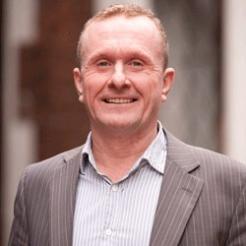The Institute of Fundraising has said the Information Commissioner’s Office must produce separate telephone fundraising guidance, after the ICO took a stance which could prevent charities calling up to 70 per cent of donors.
Peter Lewis, chief executive of the IoF, has been in personal contact with Christopher Graham, the information commissioner, to express his dissatisfaction with elements of the ICO’s regulatory approach towards charities at a telephone fundraising summit last week.
The IoF will meet the ICO later this month to ask for clearer rules.
"We feel it's a very separate relationship between a charity and its supporter than it is between a commerical firm and a customer," Lewis said. "We think donors will be upset that charities can't contact them and won't understand why."
In a separate interview with Civil Society News, Giuseppe Iantosca, founder and former director of GoGen, a fundraising agency which went into liquidation recently, said that up to 70 per cent of all donors are registered with the Telephone Preference Service.
He said the telephone fundraising sector is in danger of becoming a “vastly reduced industry” if TPS rules are not relaxed.
“TPS registered donors often accounted for 70 per cent or more of a database campaign," he said. "You’d run a rudimentary search on an upgrade campaign and 70 per cent or upwards of that database is TPS registered.
“Which is why Peter Lewis was saying that it’s very important that charities are able to communicate with their regular donors. If not, it’s going to be a vastly reduced industry.”
Iantosca said there should be a separate TPS for charities, as there are in several other countries.
ICO: charities must follow the same TPS rules
In their presentation to the telephone fundraising summit - shared afterwards with Civil Society News - ICO representatives said that charities and fundraising agencies must “follow the same [TPS] rules as everyone else”.
Previously the ICO has taken a more lenient stance with regard to telephone fundraising.
In effect the ICO's stance means the sector “must not call any number registered with the TPS, unless the subscriber has specifically told them they do not object to their calls”.
“An organisation might want to continue calling an existing customer,” continued the ICO “who has registered with the TPS even though they have not specifically consented, because it is confident in light of the past relationship that they would not object."
However it said that even calls in these circumstances are in breach of Privacy and Electronic Communications Regulations 2003 and "could result in enforcement action”, in the form of penalties of up to £500,000.
Civil Society News understands that Lewis has called upon the commissioner to confirm that charities will still be able to contact existing supporters by telephone and to better clarify what the ICO defines as “consent”, both in a charity's ability to initiate a fundraising call and how that relates to individuals otherwise registered to the TPS.
Lewis has also made clear to Graham that he feels this is a vitally important issue to the future of telephone fundraising and that the IoF’s members are in desperate need of stronger guidance in the wake of the recent media and public outcry over fundraising practices.
Former director of GoGen predicts ‘vastly reduced industry’, unless TPS rules change
In an interview with Civil Society News, Giuseppe Iantosca, former founder and director of GoGen, said that the sector is in danger of becoming a “vastly reduced industry” if TPS rules are not relaxed, because so many people are signed up to the TPS.
“TPS registered donors often accounted for 70 per cent or more of a database campaign," he said. "You’d run a rudimentary search on an upgrade campaign and 70 per cent or upwards of that database is TPS registered.
“Which is why Peter Lewis was saying (at the summit) that it’s very important that charities are able to communicate with their regular donors. If not, it’s going to be a vastly reduced industry”.
Iantosca also said that there is still “a lot more conversations” to be had about how TPS affects the charity sector.
“I think if it was clear that donors were signing on to the TPS register because they didn’t want to receive calls from charities, then everybody would respect those wishes.
"From a personal perspective, have we looked at something like setting up… you know there’s corporate TPS. I know that in Australia and Canada, charities are exempt from the TPS. Could we maybe look at setting up something like the Charity TPS where people who don’t want to be contacted by charities can sign up to a different register?"









